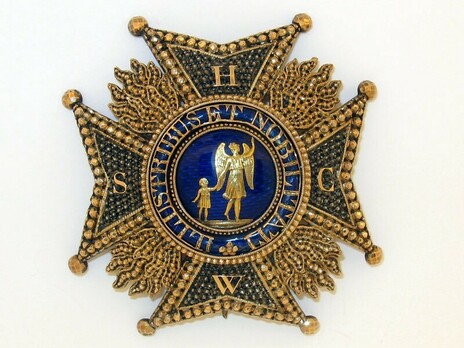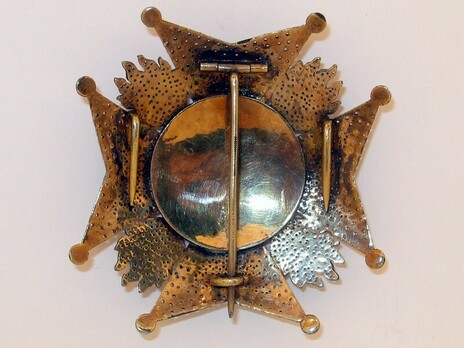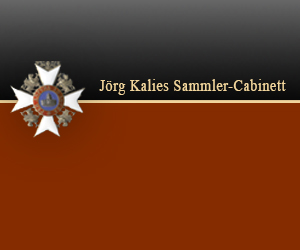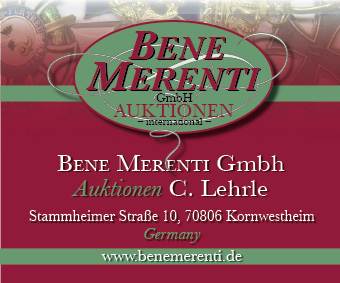Order of the Four Emperors, Grand Cross Breast Star
SKU: 01.LIM.0101.102.01
Estimated market value:


Estimated market value:
Attributes
Physical Description
A Maltese cross constructed of silver and gold. The cross is made of silver and faceted, except for the centre medallion, and each cross arm tip features a ball finial. Between the cross arms are golden flames. Each cross arm features the golden monogram of one of the four emperors: ‘H’ (12 o’clock), ‘S’ (9 o’clock), ‘C’ (3 o’clock), ‘W’ (6 o’clock). The centre medallion is blue enamelled and features the golden inscription ‘ILLUSTRIBUS ET NOBILITATI’ (‘to the distinguished and the nobility’). The golden medallion ring is smooth and narrow. The reverse is silver and smooth with a vertical pinback.
History
This Order was instituted by Count Philipp Ferdinand of Limburg-Styrum to honour the four Emperors of the Holy Roman Empire.
The Order of the Four Emperors was instituted by Count Philipp Ferdinand of Limburg-Styrum to honour the four Emperors of the Holy Roman Empire.
This order was also known as the Order of the Old Nobility.
It is uncertain whether these decorations can truly be classed as a House Order for numerous reasons. Firstly, a Graf (Count or Earl) did not have the right to establish an order. Secondly, the statutes never refer to the decorations as an order. Lastly, the co-regent Ernst and the last ruling Graf of Limburg-Styrum chose not to continue awarding the decorations.
In order to become a member of the order, an individual had to pay a fee and had to prove their noble ancestry.
The decorations featured different crown attachments, which were based on the rank of the recipient.
The decorations were worn on different coloured bands, which depended on the nationality of the recipient. The German ribbon was yellow, the French was light blue, the Spanish was dark red, the Italian was ponceau red and the Slavic was green.
The order was reorganised in 1789, and only separate ribbons for German and French recipients were featured.
Marie Antoinette was a prominent member of the order.
The order became obsolete in 1794.
The order was renewed in Austria in 1935 and in 1960, the name was changed to the Ancient Order of St. George.

Versions
$7,500 USD
Silver/Silver gilt/Gold/Enamelled
Obv: H S C W ILLUSTRIBUS ET NOBILITATI
68x70mm


Comments
Sign in to comment and reply.


Scroll Top